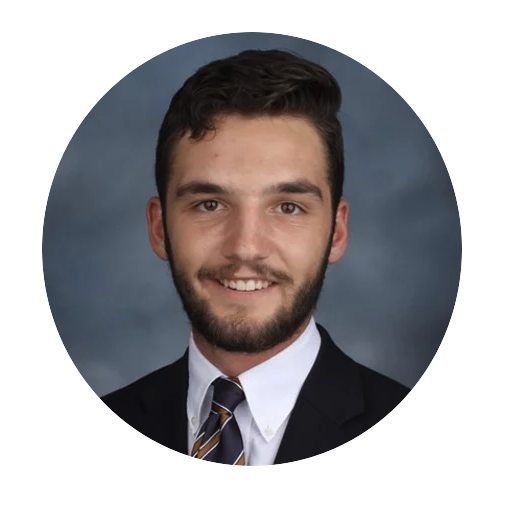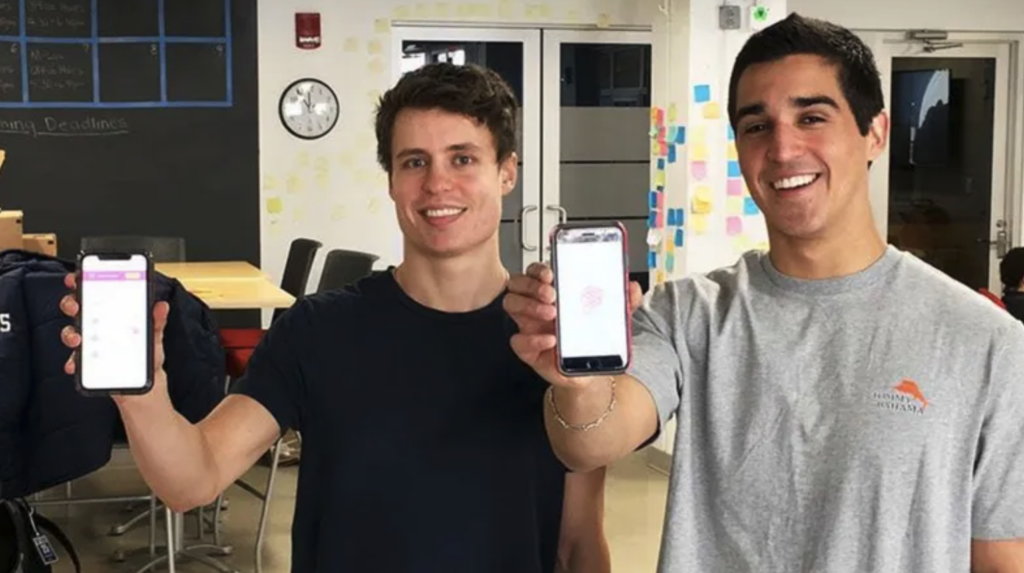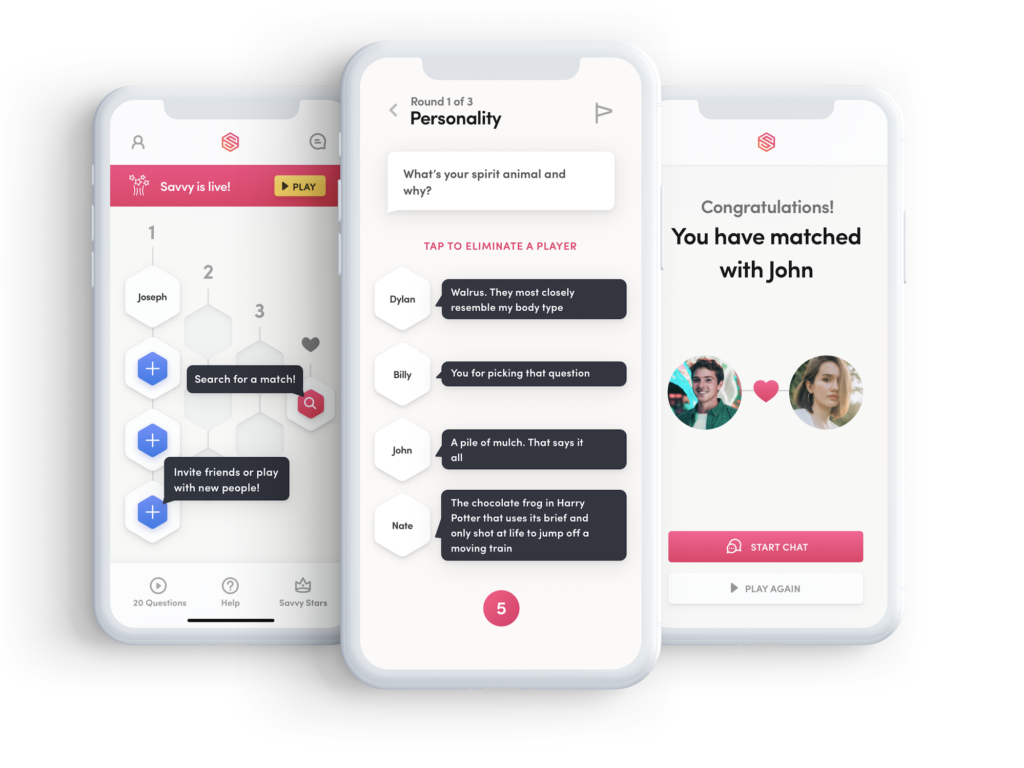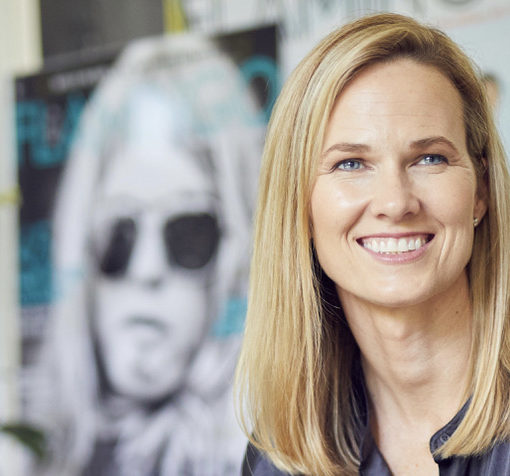Jack Maginnes is the Chief Technology Officer of the Savvy dating game, a new dating app that sets up a live dating game through a web-based app. The game takes place for one hour each night, where contestants compete with each other to win a chance to connect with someone – and, unlike most dating apps, they don’t get to see each others’ photos until they’ve matched through the dating game.
Jack was our guest on Episode 83 of the Agents of Innovation podcast. He is 21 years old, from Greensboro, NC, and a senior of Georgia Institute of Technology in Atlanta, Georgia. When he first applied to Georgia Tech, his original plan was to study business. But, as a senior in high school, he decided to change his career path to computer science – and luckily, Georgia Tech has a top program for that so he didn’t have to change schools, simply majors.
While Maginnes is “savvy” when it comes to computers, he still has a very sharp business mindset. Like many entrepreneurs, his work ethic was instilled through various jobs he has held along the way. His first job, at around the age of 16, was at a Christmas tree lot. It was then he learned how to talk to customers, helping them pick out a tree, and tying it to their car. The job was primarily tip-based, which really taught him the value of customer service.
After his freshman year of college, Maginnes worked his first internship with VF corporation, an apparel company and oversee the Vans and North Face brands. He was doing cloud engineering and web ops, for things like Amazon web services. He later worked for NCR (which previously stood for National Cash Register), where he was involved in platform engineering and a lot of work on the back end, to help the digital cash registers we see in so many retail outlets around the country recognize specific coupon codes. NCR’s headquarters is located in midtown Atlanta, just blocks away from Georgia Tech.
In the COVID summer of 2020, his internship with athletic apparel giant Nike was supposed to take place at their headquarters near Portland, which would be a nice getaway from the heat and humidity of Atlanta in the summer. But the entire internship experience was transferred to a virtual one, and Maginess primarily worked remotely from his family’s home in Greensboro. Maginnes was placed on the store inventory and management team, developing digital programs that help people in retail stores around the country to know how many products they have in stock.
Not all college students get opportunities at internships, but Maginess used his time wisely. And fortunately for him, all of his internships were paid and brought him immense on-the-job experience.
“A lot of our concepts we learn in our classes are just that – they are just conceptual,” said Maginnes. He said his internships were “extremely valuable in seeing how things are applicable.”
Maginess says a lot the culture at Georgia Tech “harps on innovation.” Building a network has reinforced the community aspect. “One of the things that has helped Silicon Valley is that’s the culture there. When you go out to a bar, you are talking about technology and that’s what helps it to continue to iterate,” said Maginnes. “It’s also a blessing and a curse. I’ve heard plenty of people say, ‘I do not want to talk about mobile apps when I go out to drink.’”
Maginess believes that culture in Silicon Valley has done a really great job with helping things continue to innovate. He also thinks “that Georgia Tech has done a really good job in bringing that culture to Atlanta.”
Maginnes mentioned that for people who are in fields like computer science, one of the things many job recruiters look for are work on side projects – whether they are through jobs and internships or through things you might have developed on your own time.
Jack also knows about six or seven languages, including the two big ones like Java and Python. While he also learned Latin in school, these other languages he speaks of are computer languages – the new “lingo” that machines use to speak to one another and that coders use to make the machines work for us.
The Savvy dating app is exclusively on Apple iOs, which has its own native language, Swift. Maginnes advises people trying to learn these languages not to try to memorize the language, but rather to “learn how to think like a computer scientist,” said Maginnes. “It’s all about learning how to problem solve without any language-specific functions or variables.”
Savvy was created by Brendan Kenny and Fernando Delgado, students at Villanova University in Pennsylvania. They had won entered a few start-up contests, including the Villanova Meyer Ice Awards and the Big East Startup Challenge
It was at this point that they were looking for a developer. Brendan and Fernando play Xbox with one of Maginnes’ high school friends, someone they did not know in person, only through their screennames. But, they had played Xbox with each other for about a decade. One day, through the Xbox platform, they were chatting about a new app they come up with and said they need a computer science guy. That’s when the mutual friend told them about Jack.
“When you’re a computer science student,” said Maginnes, “people are pitching you their ideas all the time. Everyone has the next big app idea somehow and so they want someone who can build it for them. So, I was very skeptical off the bat.” But then after he talked to them on the phone and learned the full concept, he got excited by the project. “I thought this could go far. I would play it.”
Jack came on as the chief developer of the app in late 2019, without ever meeting the co-creators in person. And, due to COVID19, he still hasn’t met those co-creators in person, but spends plenty of time with them on Zoom. They started working remotely from hundreds of miles away, and they have remained that way as many have remained physically distant throughout 2020.
The target audience for Savvy are primarily college students. Most other dating apps have seen a major decline in the college audience, so Savvy is going after them. And during the economic lockdowns, with college students more physically distant from each other than during normal times, Savvy has been a fun way for people to get together and play a dating game, even while apart.
“From a business standpoint, the fundamental idea of Savvy is what makes it exciting. Everyone is online and playing together each night. From an engineering standpoint, it’s what makes it terrifying,” wrote Maginnes.
“When you look at a typical website … you get traffic spread out over 24 hours pretty much,” said Maginnes. “For the most part traffic will be pretty spread out which gives you the opportunity to manage servers, manage databases, whatever else, in a fairly standard way. When you look at Savvy, real-time communication is difficult because of how fast it moves. You have to have the leanest tech … making sure everything is moving as fast as possible because if I send an answer and you send an answer and it’s too slow for both of our answers to show up then the game is going to break and that’s something that still happens today in our app and we’re constantly trying to improve those algorithms, improve those servers, so we can get that really fast feedback.”
Savvy will frequently go from 5 or 10 people online before the Savvy notification goes out for the game to start. And then, 800 or 900 people are immediately online. “Your servers get overloaded really quickly. That’s something we’re trying to take into account: how can we load and manage that many people coming online at the exact same time.”
On the back end, Savvy uses Amazon Web Services (AWS). They have fantastic services that allow Savvy to manage their web traffic as best as possible and they are getting better at it every day. Amazon allows “you to run databases in the cloud, run services in the cloud,” said Maginnes.
Before COVID19 locked everything down, Savvy brought on reps at various colleges. They would do things like throw $500 at a sorority bar tab, hang up a Savvy flag, hand out palm cards with QR codes and get students signed up, using the game. Then, when COVID forced and colleges and their big college parties to shut down, Savvy changed their marketing strategy. “We’ve pulled a full 180,” said Maginnes. “Now we’re putting money into like TikTokers and Influencers.”
Balancing school, internships, and developing the Savvy live dating app requires Maginnes to really plan out his schedule methodically at the beginning of every week and manage his time efficiently by time blocking and keeping track of what he’s doing when. He uses the Bullet Journal, which was invented by an engineer. “That has revolutionized the way I organize my thoughts and what my work process is,” said Maginnes. For him, it all comes down to prioritizing and time-blocking. “There are weeks where I just can’t get everything done, and that happens.”
Savvy has been growing exponentially. While that growth is great for the business, it also brings challenges for the developers to keep up with.
Maginnes says that learning on the job has taught him far more than any class he’s taking. “No matter what entrepreneur you talk to, the number one thing they are going to recommend is constantly be learning and constantly iterating on your own ideas.” He suggests books and YouTube as things we have easier access to these days to learn outside the classroom. Maginess listens to the Agents of Innovation podcast as well as many other podcasts – and constantly learns from others in tech and other fields. “Be open to ideas. You don’t know what you don’t know so you have to be able to figure out those things and look at the people who came before you and see where you can fill in those knowledge gaps.”
“One of the things that you can take away is that high-performers in any area typically do the same thing and what I mean by that – it’s like the 7 Habits of Highly Effective People and this isn’t typically innovation-based – but you can build your business in the same way that anyone built their business, to an extent, no matter what industry they’re in and you can build your brand the same way.”
In this spirit, Savvy is constantly learning from so many others – not only other dating apps but also from those in the gaming industry – on how they can constantly be making the Savvy app more fun so users continue to play. And, after all, online gaming is partly what brought the Savvy team together without seeing each other’s faces or meeting in person. “It comes full circle,” said Maginnes.
You can listen to the full interview on Episode 84 of the Agents of Innovation podcast, on Apple podcasts, Amazon podcasts, Google podcasts, Stitcher, and SoundCloud. You can also follow the podcast on Facebook, Instagram, or Twitter.
Please consider supporting the Agents of Innovation community by becoming a member of our Patreon page today, starting at just $5.00 a month!








